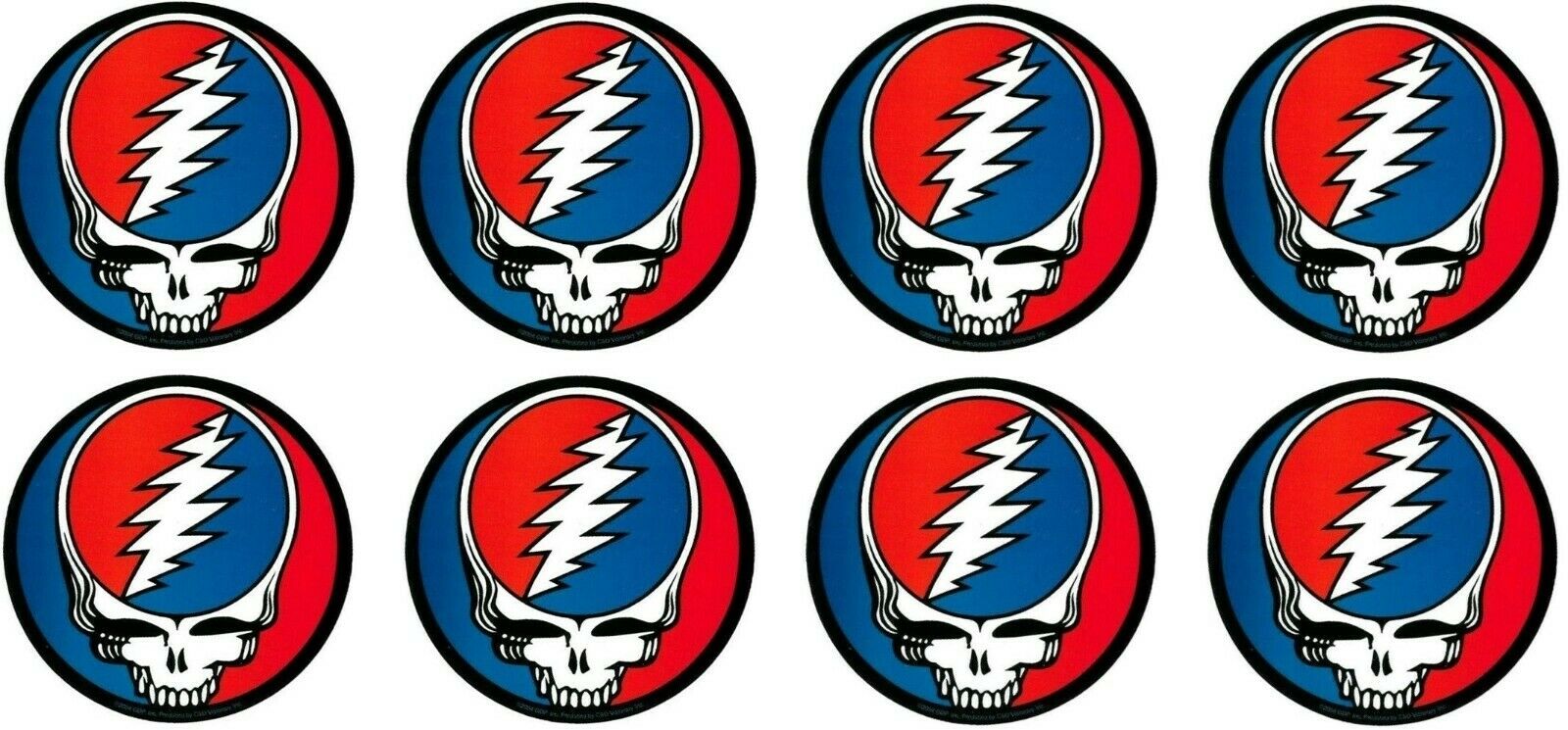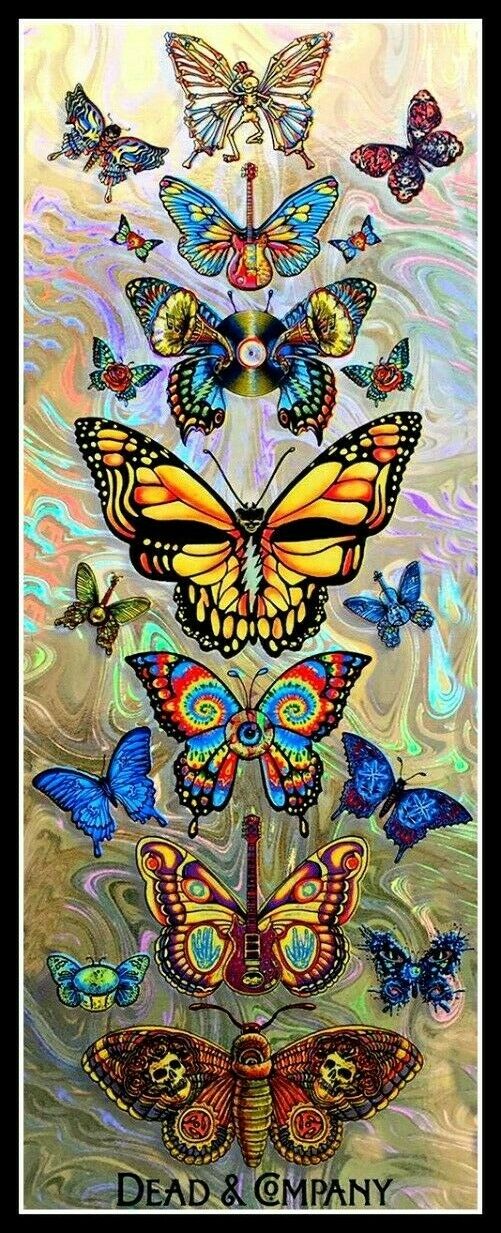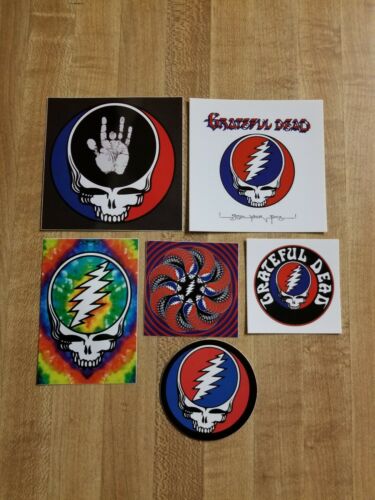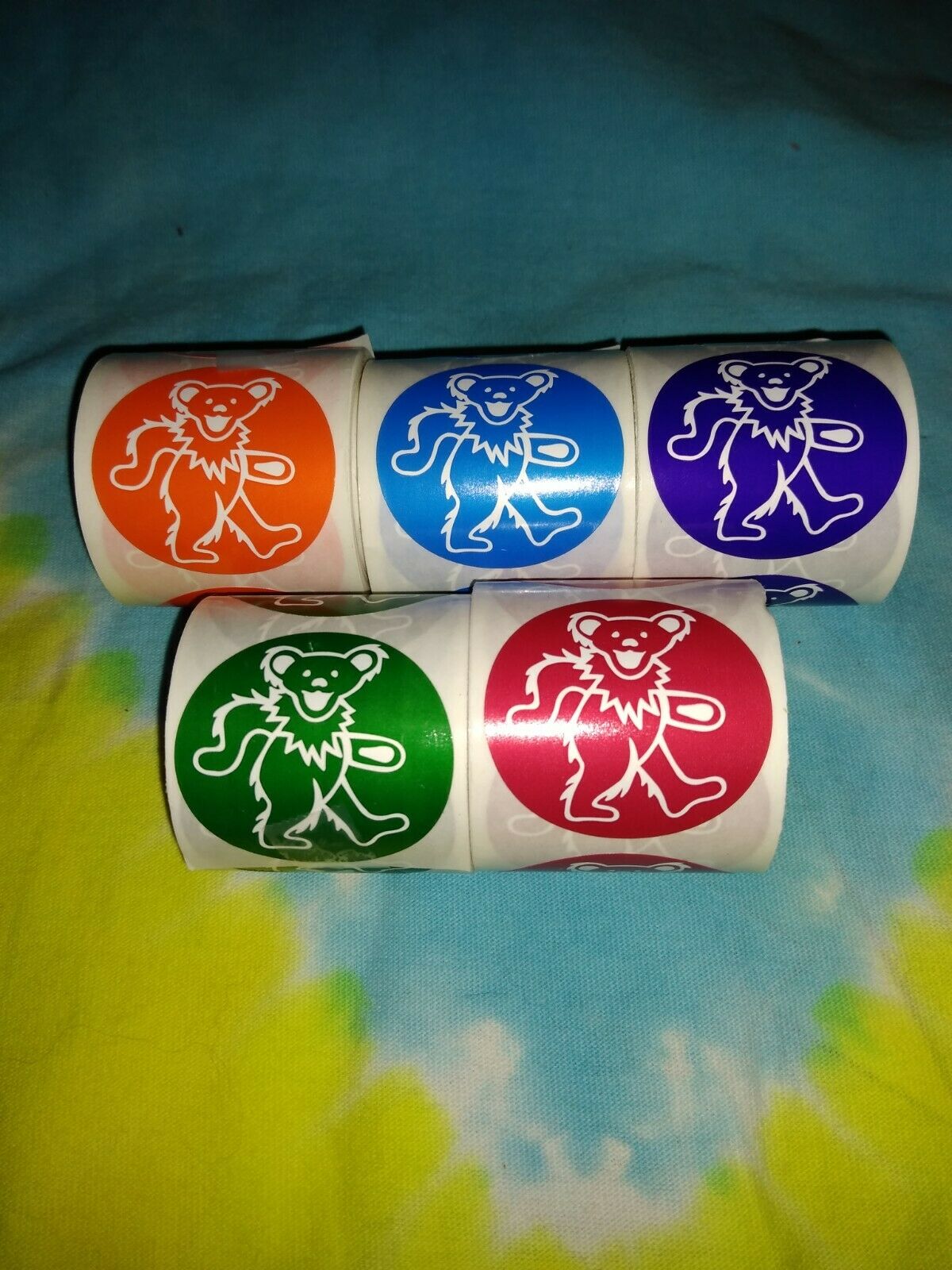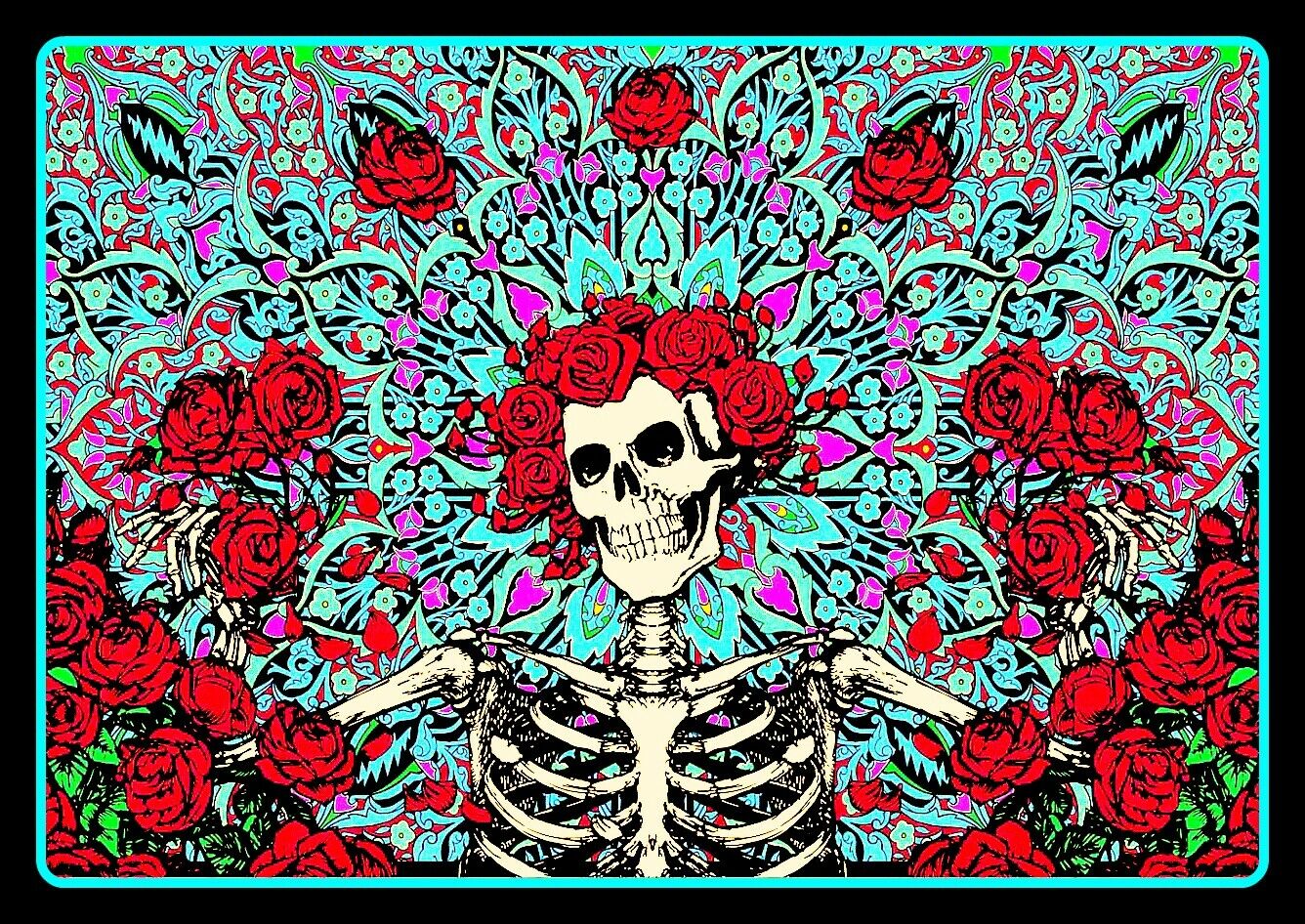-40%
Grateful Dead Lawyer Hal Kant's Massive Decorated Antique Safe
$ 1188
- Description
- Size Guide
Description
Large Antique Safe, with Grateful Dead Association.The National Safe and Lock Co., Cleveland, Ohio. Built in about 1880, 48 inches tall, 37 wide, 30 5/8 deep (exterior measurements), un-weighed but somewhere around
3,000 pounds, maybe more!
It has a Yale combination lock, copyright 1880. With the combination and a key to the small inside door but not the two inside side drawers.
Buyer must take all responsibility and pay all expenses of picking up and shipping this item.
A suggestion: rent or hire a local fork lift operator to put it in your sturdy truck or trailer.
The safe is currently in a garage in Gardnerville, Nevada. There is a very slight slope to the street, smooth concrete all the way. It arrived in a moving van with a rear lift gate, it was sitting on a two part, four wheeled hydraulic lift, the two parts attached together with heavy duty straps, a "rol-a-lift" style apparatus.
When auction is over, buyer must pay a
non-refundable deposit
of 0, must pick up and remove the safe within 30 days of the end of the auction or forfeit the deposit, pay the remainder at time of pick-up with Nevada sales tax of 7.1%. Payment of the remainder with PayPal or cash, only.
This safe was Hal Kant's - attorney for The Grateful Dead. He had it painted with symbols important in his life - a poker hand (aces and eights), the brand used on his ranch, and the iconic Grateful Dead rose.
See below for three obituaries of Hal Kant (1931-2008). At the end is a condition report with pictures.
Dennis McLellan,
Los Angeles Times,
October 26, 2008
Hal Kant dies, Grateful Dead's legal mind
Harold "Hal" Kant, the Grateful Dead's longtime principal lawyer and corporate general counsel who spent more than three decades helping protect the legendary rock band's lucrative musical legacy, has died. He was 77.
Mr. Kant died of pancreatic cancer Oct. 19 at home in Reno, said his son Jonas.
Once described in the National Law Journal as a "conservative, Republican, poker-playing opera fan," the bearded, Bronx, N.Y.-born lawyer launched his more than 35-year association with the Northern California band in 1971.
Grateful Dead co-founder Bob Weir described Mr. Kant last week as a "dear friend" who was "most instructive to us." "The Grateful Dead was known for its revolutionary approach to the music industry, and Hal was part and parcel of that," Weir said in a statement. "We wanted a place for humanity in a business that more resembled a nightmare circus than much else, and he helped us find it."
With tongue in cheek, Mr. Kant's Grateful Dead business cards described his title with the band - whose lead guitarist, Jerry Garcia, died in 1995 - simply as "Czar."
"He oversaw every aspect of their business, whether licensing, touring, trademarks, merchandise or Garcia getting busted for drugs," said Jonas Kant, a music lawyer and a senior vice president at Sony/ATV Music Publishing.
"They were known for being a free-loving, peace-loving band, but he helped them run everything like a structured business," he said.
Mr. Kant, who accompanied the band on various tours, "did all of their recording and music publishing agreements," his son said. "He was renowned for being very much ahead of his time in terms of protecting the artists' and songwriters' rights."
Mr. Kant ensured that the masters of the Grateful Dead's recordings and copyrights in the music would be owned by the band, his son said. He also enlisted an Oakland law firm to handle enforcement of the band's trademarks.
Dennis McNally, author of the 2002 biography
A Long Strange Trip: The Inside History of the Grateful Dead,
said Mr. Kant "was a significant force in keeping them together by having the business function well so that they could do what they wanted to do, which is play music."
When Ben & Jerry's ice cream produced a new flavor, Cherry Garcia, in the early '90s, McNally wrote in his book, the company did so without even discussing the idea with Garcia. Although Garcia was unconcerned when it was first brought to his attention - "At least they're not naming a motor oil after me, man," he said - Mr. Kant convinced him that the issue should be addressed. As recounted by McNally, Mr. Kant told Garcia: "They will name a motor oil after you if you don't confront this, Jerry. You'll have no control over your name at all." Garcia finally told Mr. Kant, "If it bothers you, go ahead."
"In the next few years," McNally wrote, "Jerry would have no problems in spending the large sum of money he'd earn thanks to the letter Mr. Kant wrote (to Ben & Jerry's)."
Mr. Kant remained the band's general counsel until around 2000, but he continued to represent Ice-Nine, the band's music publishing company, until his death.
He also was a lifelong poker player, who cut classes at DeWitt Clinton High School in the Bronx to play penny poker with other kids in a clubhouse in the cellar of a tenement house.
With a penchant for wearing a cowboy hat and boots and smoking Cuban cigars, Mr. Kant began playing casino poker in 1984 and won the World Series of Poker in 1987.
Mr. Kant, who was executive director of the Legal and Behavioral Institute in Los Angeles in the '70s, also was a co-author of the 1973 book
Pornography and Sexual Deviance.
In addition to his son Jonas, Mr. Kant is survived by his wife, Jesse; two other sons, Garth and Tony; his sisters, Charlotte Silverman and Thelma Sameth; his stepchildren, Cameron Cassidy Sloane and Sean Cassidy; and five grandchildren.
The Independent
, (London), December 8, 2008
Hal Kant: Lawyer for the Grateful Dead
Only a halfwit could believe that the music industry always plays fair and straight. In days of old the business was a morass of bad practices and conflicts of interest and many musicians signed away their future to their record company or music publisher. It was even common for the record company's lawyer to represent both parties. The attorney Hal Kant redressed the balance. Through astute representation and legal positioning, he became a central force in the success of the Grateful Dead, turning the group's fortunes around.
Kant took on the San Francisco-based psychedelic group in 1971. He became the group's legal counsel and acted as their "tsar" - his job description on backstage passes - ensuring that even after their dissolution, on the death of the lead guitarist Jerry Garcia in 1995, the money continued to roll in. During their 30 years together, the Dead consistently generated more income year in year out than acts such as the Rolling Stones, by dint of their continually touring. In 2001 Forbes magazine put their annual income at m.
Born in Queens, New York, Harold Kant grew up in the Bronx. By the time he fell into the Dead's orbit he had attended the City College of New York, the University of Washington and Penn State, where he obtained a master's in psychology. He then graduated from Harvard Law School. Crossing the continent, he joined a law firm in Beverly Hills. Next door was the William Morris Agency, which meant that entertainment artists joined his roster. At various times Kant's clients included Sonny & Cher, the Association, Captain Beefheart, Janis Joplin, Stevie Ray Vaughn, the New Riders of the Purple Sage and Hot Tuna.
Until Kant's arrival, the Grateful Dead had muddled through, with a vexed business history and a frictional relationship with their record company, Warner Brothers. In 1970 Garcia had spoken bluntly: "A record company is a vampire." Kant saw that the record companies were out-manoeuvring music acts at every turn. He supervised the Dead's reorganisation as a corporation, asserted their intellectual property rights (including artwork), controlled their brand and capitalised on public goodwill. On his watch, the band created a new, alternative business model which was singled out in Sam Hill and Glenn Rifkin's 1999 book
Radical Marketing: from Harvard to Harley,
and made their fortune.
When the Dead signed to Arista in 1976, Kant ensured that they earned royalties above the going rate. When the ice cream manufacturer Ben & Jerry's created its Cherry Garcia flavour, the leader singer was initially unperturbed. Kant was not. He fired off a letter to the company which led to a revenue stream for the group's charitable wing, the Rex Foundation, and for Garcia himself.
Kant's relationship with the band was unusual. He did not negotiate a fixed percentage for himself and he was not a specialised music attorney. As the Grateful Dead's biographer Dennis McNally wrote, Kant was "a retained attorney giving legal advice, but he had no financial interest".
Kant also had a notable sideline as a poker player.
The New York Times
, Oct. 23, 2008
KANT--Harold Sanford, passed away peacefully on Sunday, October 19, 2008, after battling pancreatic cancer. Hal, a politically conservative entertainment lawyer, was a man of apparent contradictions. For over thirty-five years, the registered Republican was the principal lawyer and general counsel for the seminal 60s rock band, the Grateful Dead. Hal created and oversaw the various corporations that managed the day-to-day business of the legendary band; his guiding hand is credited with preserving the band's enduring legacy and their valuable intellectual property, including ownership of their music masters and publishing rights (a rare feat in the early days of rock 'n roll music). So domineering was Hal's influence within the band, Jerry Garcia and the band emblazoned his Grateful Dead business cards with the simple title, "Czar." Despite Hal's reputation as one of the most prominent and pioneering of music lawyers, the Grateful Dead were only a small part of Hal's diverse international business and legal practice. A devotee of classical opera, Hal was also an accomplished amateur poker player. In 1987, Hal won the World Series of Poker. In 1973, Hal coauthored the groundbreaking monograph,
Pornography and Sexual Deviance
, with Michael J. Goldstein and John J. Hartman; he continued to write numerous white papers throughout his career. Born in the Bronx, New York on July 29, 1931, Hal attended DeWitt Clinton High School before pursuing his undergraduate degree at CCNY and the University of Washington. Hal obtained his master's degree in psychology from Penn State University. In 1958, Hal graduated with honors from Harvard University Law School. After law school, Hal clerked for the esteemed Judge William Orr of the U.S. Court of Appeals for the 9th Circuit. Hal had a passion for skiing, golf, painting, and was an avid art collector. Above all, he was a caring and generous man who had a strong influence on those who had the opportunity to know him. Hal is survived by his wife, Jesse Kant, his sons, Garth, Tony, and Jonas (Lucy); his sisters, Charlotte Silverman and Thelma Sameth; his stepchildren, Cameron Cassidy Sloane (Robin) and Sean Cassidy (Andrea); his grandchildren Ashlyn, Austin, Eva, Samantha, Trevor; and his many nieces and nephews. He will be sorely missed. Donations in his honor may be made to the Tower Cancer Research Foundation in Los Angeles (towercancerfoundation.org/ donations.html).
Condition:
Some of the pictures demonstrate some the more significant condition issues, including peeling paint, stray marks, wear to some wooden parts and the carpet in the bottom. All the moving parts function and fit perfectly, including the eight-inch-thick doors. The wheels roll, though none of them turn - they were not designed to turn.













